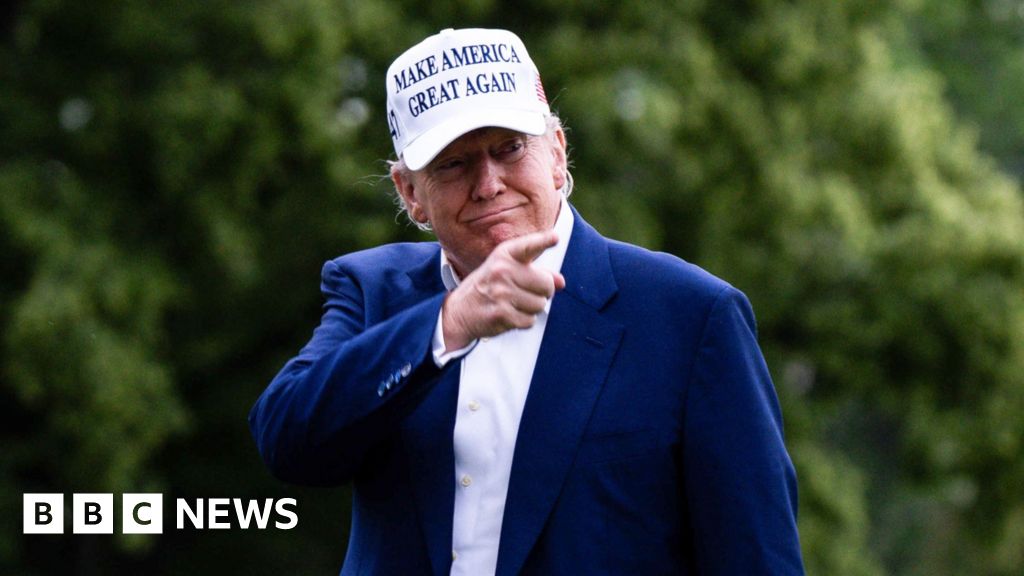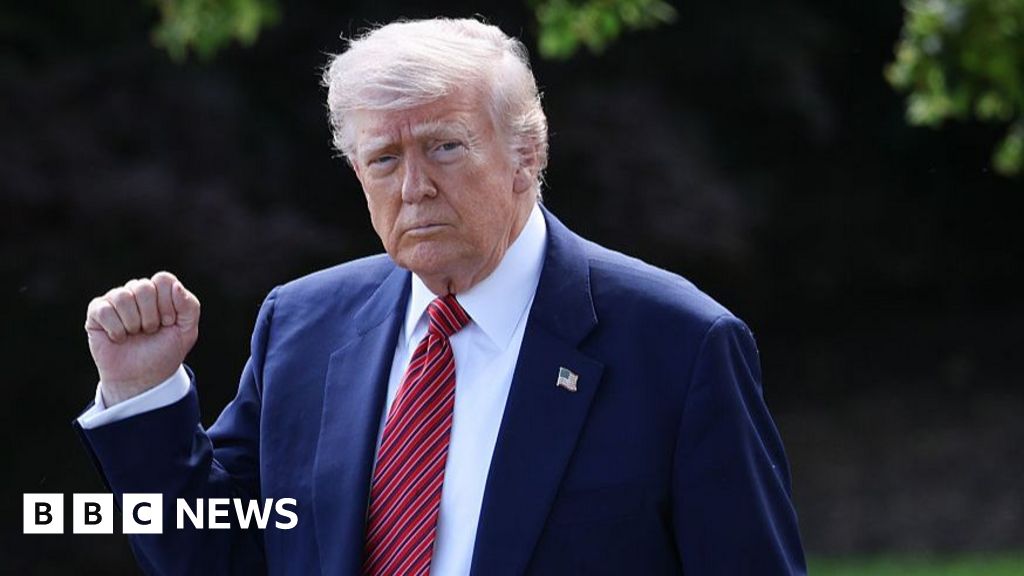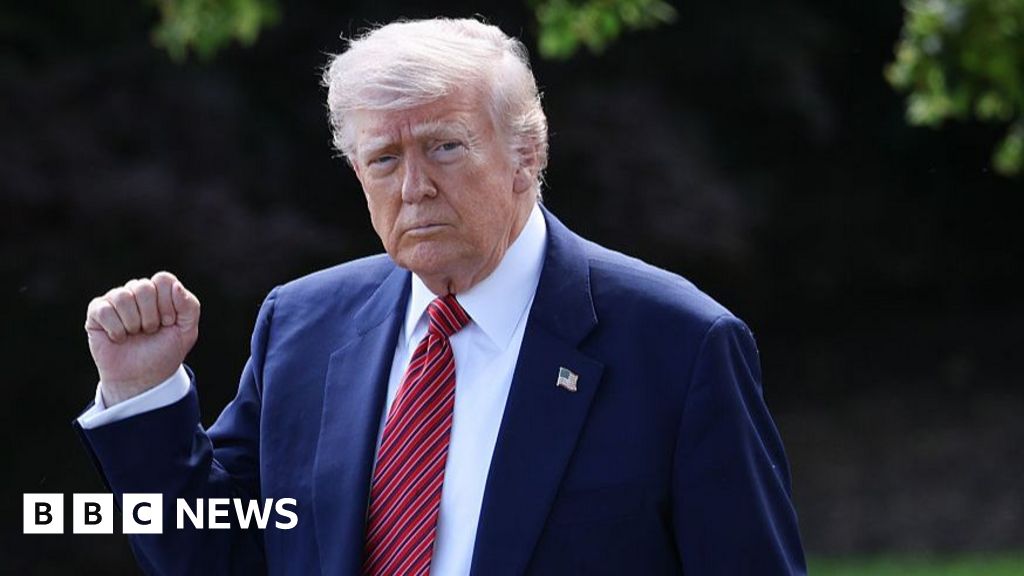## Game Over for Cheap Controllers? Trump Tariffs Stick Around, Leaving Gamers in Limbo 🎮
Remember those rumors about controllers getting significantly pricier? Well, buckle up, gamers, because the dust hasn’t settled on those Trump tariffs. The BBC is reporting that those hefty import taxes are staying put for now, leaving the future of your wallet (and your gaming setup) a big question mark.

Trump’s Options

Despite the court ruling, Trump still has several options available to him to impose tariffs on imported goods. One potential avenue is to appeal the decision to the Supreme Court, which could potentially overturn the ruling and allow Trump to continue imposing tariffs.
Another option is to invoke alternative trade laws, such as Section 232 or Section 301, which would allow Trump to impose tariffs on specific goods or countries. For example, Trump has already imposed tariffs on cars, steel, and aluminum under Section 232, which allows the president to impose tariffs in the interest of national security.
Trump could also implement smaller-scale tariffs under a different justification, such as Section 338, which allows the president to impose tariffs of up to 50% on imports from countries that “discriminate” against the US. However, this law has not been used in decades and would likely face significant opposition from Congress and the international community.

Expert Analysis
“The Trump administration has a history of using tariffs as a tool to pressure other countries into making concessions,” said Ilya Somin, a lawyer and expert on international trade. “However, the court’s ruling has put a significant damper on Trump’s ability to impose tariffs without Congressional approval.”
- Appeal to the Supreme Court: Trump could appeal the decision to the Supreme Court, which could potentially overturn the ruling and allow him to continue imposing tariffs.
- Invoke alternative trade laws: Trump could invoke alternative trade laws, such as Section 232 or Section 301, which would allow him to impose tariffs on specific goods or countries.
- Implement smaller-scale tariffs: Trump could implement smaller-scale tariffs under a different justification, such as Section 338, which allows the president to impose tariffs of up to 50% on imports from countries that “discriminate” against the US.

The Global Impact
The global impact of Trump’s tariff policies has been significant, with many countries and industries feeling the effects of the tariffs. One of the most notable effects has been the disruption to global supply chains, as companies scramble to find new suppliers and adjust to the new tariffs.
The tariffs have also had a significant impact on trade relationships, with many countries imposing retaliatory tariffs on US goods. This has led to a trade war between the US and many of its major trading partners, including China, the EU, and Canada.
The tariffs have also had a significant impact on consumer prices, as companies pass on the costs of the tariffs to consumers. This has led to higher prices for many goods, including electronics, clothing, and furniture.
Regional Variations
The impact of the tariffs has been felt differently in different regions, with some regions feeling the effects more than others. For example, the tariffs have had a significant impact on the US automotive industry, with many car manufacturers facing significant increases in costs.
The tariffs have also had a significant impact on the US agricultural industry, with many farmers facing significant losses as a result of the tariffs. This has led to calls for the US government to provide support to farmers affected by the tariffs.
- Disruption to global supply chains: The tariffs have disrupted global supply chains, as companies scramble to find new suppliers and adjust to the new tariffs.
- Impact on trade relationships: The tariffs have had a significant impact on trade relationships, with many countries imposing retaliatory tariffs on US goods.
- Impact on consumer prices: The tariffs have had a significant impact on consumer prices, as companies pass on the costs of the tariffs to consumers.
The Future of Trade Negotiations
The court ruling has significant implications for the future of trade negotiations between the US and its trading partners. The ruling has put a significant damper on Trump’s ability to impose tariffs without Congressional approval, which could potentially lead to a shift in the US trade policy.
One potential outcome is that the US could shift towards a more bipartisan approach to trade policy, with Congress playing a more significant role in shaping trade agreements. This could potentially lead to more stable and predictable trade relationships with the country’s major trading partners.
Another potential outcome is that the US could continue to impose tariffs on imported goods, but with a more nuanced approach that takes into account the needs and concerns of different industries and regions. This could potentially lead to more targeted and effective trade policies that benefit the US economy and its citizens.
Expert Analysis
“The court ruling has significant implications for the future of trade negotiations between the US and its trading partners,” said Dr. Peter Navarro, a trade expert and advisor to the Trump administration. “The US will need to rethink its trade policy and find a more balanced approach that takes into account the needs and concerns of different industries and regions.”
- Shift towards a more bipartisan approach: The US could shift towards a more bipartisan approach to trade policy, with Congress playing a more significant role in shaping trade agreements.
- Continued imposition of tariffs: The US could continue to impose tariffs on imported goods, but with a more nuanced approach that takes into account the needs and concerns of different industries and regions.
- More targeted and effective trade policies: The US could implement more targeted and effective trade policies that benefit the US economy and its citizens.
The Gamer’s Perspective
The impact of tariffs on the gaming industry has been significant, with many gamers feeling the effects of the tariffs on their favorite games. One of the most notable effects has been the increase in prices for many games, as companies pass on the costs of the tariffs to consumers.
The tariffs have also had a significant impact on the availability of games, as companies scramble to find new suppliers and adjust to the new tariffs. This has led to delays in the release of some games and a shortage of certain titles.
The tariffs have also had a significant impact on the gaming community, with many gamers feeling frustrated and disappointed by the delays and shortages. This has led to calls for the US government to provide support to the gaming industry and to take steps to mitigate the impact of the tariffs.
Localized Impacts
The impact of the tariffs has been felt differently in different regions, with some regions feeling the effects more than others. For example, the tariffs have had a significant impact on the US gaming industry, with many gamers feeling the effects of the tariffs on their favorite games.
The tariffs have also had a significant impact on the UK gaming industry, with many gamers facing significant increases in prices for many games. This has led to calls for the UK government to provide support to the gaming industry and to take steps to mitigate the impact of the tariffs.
- Increase in prices: The tariffs have led to an increase in prices for many games, as companies pass on the costs of the tariffs to consumers.
- Delays in the release of games: The tariffs have led to delays in the release of some games, as companies scramble to find new suppliers and adjust to the new tariffs.
- Shortage of certain titles: The tariffs have led to a shortage of certain titles, as companies struggle to find new suppliers and adjust to the new tariffs.
Gaming Industry Vulnerability
The gaming industry has been vulnerable to the impact of tariffs, with many gamers feeling the effects of the tariffs on their favorite games. One of the most notable effects has been the increase in prices for many games, as companies pass on the costs of the tariffs to consumers.
The tariffs have also had a significant impact on the availability of games, as companies scramble to find new suppliers and adjust to the new tariffs. This has led to delays in the release of some games and a shortage of certain titles.
The tariffs have also had a significant impact on the gaming community, with many gamers feeling frustrated and disappointed by the delays and shortages. This has led to calls for the US government to provide support to the gaming industry and to take steps to mitigate the impact of the tariffs.
Consumer Takeaways
Consumers can expect higher prices for many games, as companies pass on the costs of the tariffs to consumers. They can also expect delays in the release of some games and a shortage of certain titles.
Consumers can take steps to mitigate the impact of the tariffs by shopping around for deals and discounts, and by considering alternative gaming platforms and services.
- Higher prices: Consumers can expect higher prices for many games, as companies pass on the costs of the tariffs to consumers.
- Delays in the release of games: Consumers can expect delays in the release of some games, as companies scramble to find new suppliers and adjust to the new tariffs.
- Shortage of certain titles: Consumers can expect a shortage of certain titles, as companies struggle to find new suppliers and adjust to the new tariffs.
Conclusion
So, the Trump-era tariffs are sticking around for now. The World Trade Organization’s recent ruling, upholding the US’s right to impose these tariffs on goods from China, throws a wrench into the gears of global trade, especially for the gaming industry. As the BBC article highlights, these tariffs, designed to protect American jobs and combat unfair trade practices, have instead fueled price hikes and supply chain disruptions. This isn’t just about higher prices for consoles and games; it has wider implications for the entire gaming ecosystem. Indie developers, reliant on components and materials sourced from overseas, are particularly vulnerable. The ripple effects could lead to fewer innovative titles, stifled creativity, and ultimately, a less vibrant gaming landscape. What happens next is anyone’s guess. Will the US and China engage in further negotiations, or will this escalate into a full-blown trade war? Will other countries follow suit, imposing their own tariffs and further fragmenting the global market? One thing is certain: the gaming industry, and indeed the world, is watching closely, hoping for a resolution that prioritizes fair trade and the free flow of innovation. The future of gaming, and perhaps global commerce, hinges on it.
